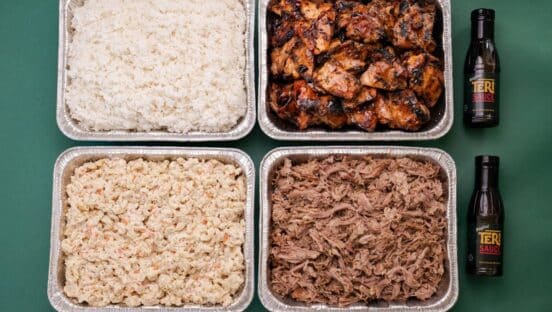When the California Restaurant Association Educational Foundation (CRAEF) held its first Force in Training (FIT) program, volunteers from several quick-serve brands stepped up to help high school students prepare for possible foodservice employment.
“Quick service is a very large segment of our industry and it employs a lot of young people,” says Alycia Harshfield, executive director of CRAEF. “A lot of people’s first job is in quick service, so quick service is a valuable partner in this effort to prepare and train young people.”
The three-hour soft-skills training program was presented to more than 2,000 students by 77 volunteer restaurant managers and executives representing 42 brands in 33 high schools across the state of California. Quick serves that participated included Rubio’s, McDonald’s, and Jack in the Box. The participating schools were all part of the ProStart program, a two-year training program headed by the National Restaurant Association that provides high school students courses in food preparation, cost control, and workplace safety.
FIT, held in October, was designed to address the need for high school students to learn the soft skills required when seeking employment in the restaurant industry or any other field. The California Restaurant Association (CRA) estimates that three out of four Americans got their first job experience in a restaurant, and 80 percent of restaurant owners started in entry-level positions. In recent years, however, it has become more challenging for teens to land jobs and for restaurants to find hirable young workers.
“Year-round, the CRA supports culinary arts programs teaching basic technical skills, but we hear from our members that young people are lacking in soft skills, such as interviewing, communications, and other basics necessary for success in the workplace,” Harshfield says. “So we created this industry-wide service day to help young people with these soft skills.”
In addition to job-readiness skills, volunteers from various brands told participants about the variety of jobs available in the restaurant industry because it was also a goal of the FIT initiative to recruit talent for the restaurant industry.
Dennis Tase, CEO of Wienerschnitzel, says his company was a financial supporter of FIT because the program benefitted both students and the industry.
“It was a great opportunity to get in front of young people and introduce them to our industry. And if we could, at the same time, give them some life skills, then we’re making everybody better,” Tase says.
Gabe Hosler, director of training and operations services for Rubio’s Restaurants Inc., also found the program to be a big success for both the students and the participating brands.
“FIT is an investment on behalf of the entire industry in the future of foodservice,” he says. “It’s getting kids on the right track in the hospitality industry.” He adds that when it comes to educating students about the hospitality industry, it is important for them to see that it’s not just about fine dining and that there are careers beyond the cash register.
“It’s important to get face time with the students so they know there are a variety of careers out there for them,” he says. In the months since the FIT program was held, Rubio’s has hired “quite a few” of the students who participated, Hosler says.
Ron Wood, senior manager of field training at Rubio’s, was a FIT presenter at a San Diego High School. He says that at the beginning of the event, some students had trouble making eye contact with presenters and had body language that gave the impression they weren’t interested. But as the program got going, many came out of their shells.
“We talked about that element of first impressions a lot,” Wood says. “How you need to make eye contact, smile, and ask questions of the interviewer to show that you are interested and excited.”
He says the FIT program is especially beneficial for limited-service restaurants, since the industry deals with a lot of 16–20-year-olds. “For every three or four kids that needed help with the soft skills, you’d get one that was off-the-charts awesome,” Wood says. “I was completely blown away by the drive of some students.”
Wienerschnitzel’s Tase says the FIT program was a chance to help the students overcome their misconceptions about careers in quick-serve restaurants.
“There are endless opportunities in the quick-serve segment, and we need to get that message out to young people,” he says. “A lot of people have made careers out of the quick-serve segment.”
Limited-service brands were a valuable partner in the FIT effort to prepare and train young people, Harshfield says.
“We want to show students the full spectrum of opportunity,” she says. “They need to know that a lot of creativity in our industry comes from the quick-serve segment, like concepts and menu development. So much goes on in this segment, and there’s a lot of opportunity for young people to be involved in that.”
The FIT curriculum covered job-landing skills like résumé writing, how to fill out an application, job search etiquette, and interview skills, as well as how to make a good impression and dress for success. Students were also taught skills they’d need for success once they landed a job. These topics included positive attitude, professionalism, how to take initiative, teamwork, and how to provide good customer service. The program also encouraged students to take a longer view beyond their first job and consider their overall image and confidence, how to be a leader, and career mapping.





